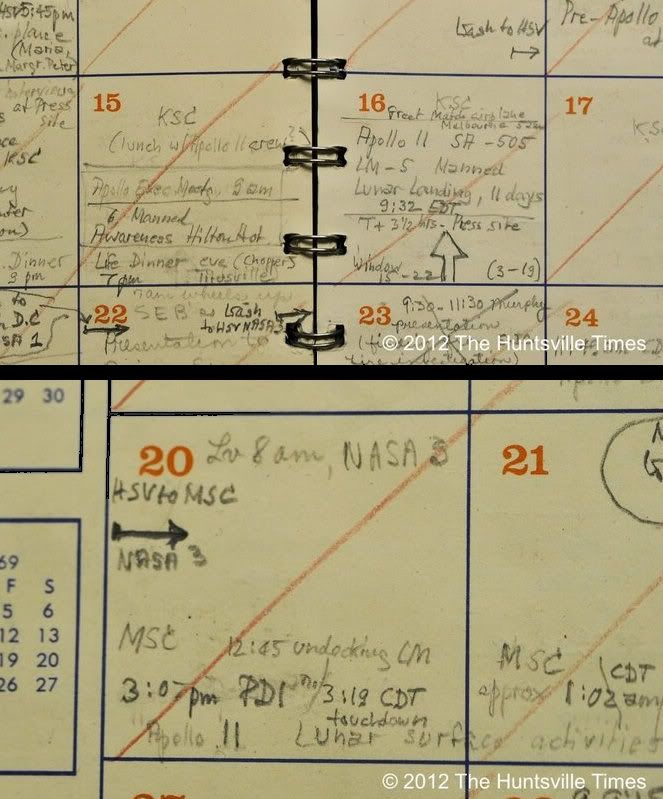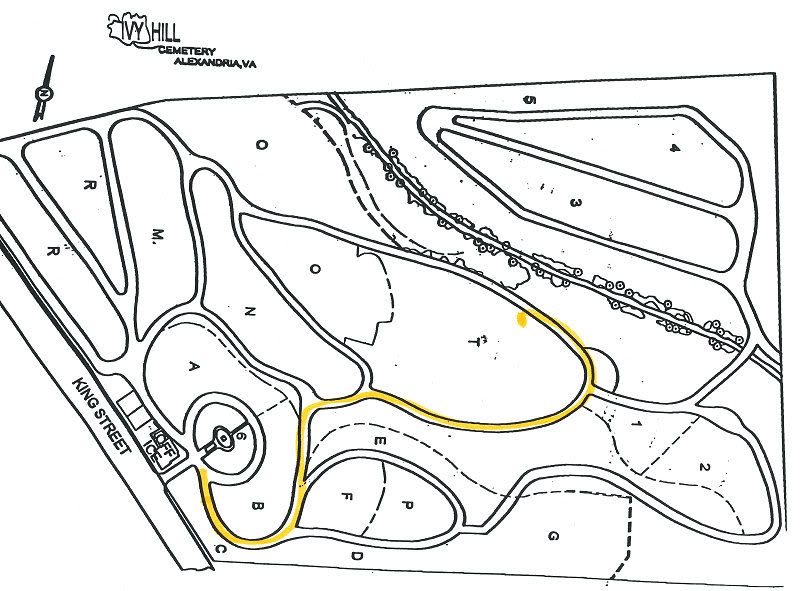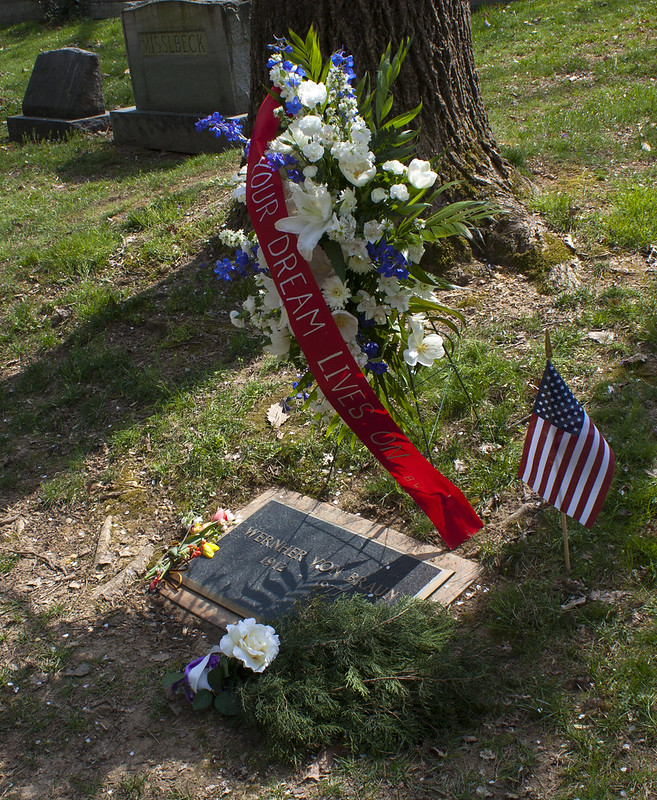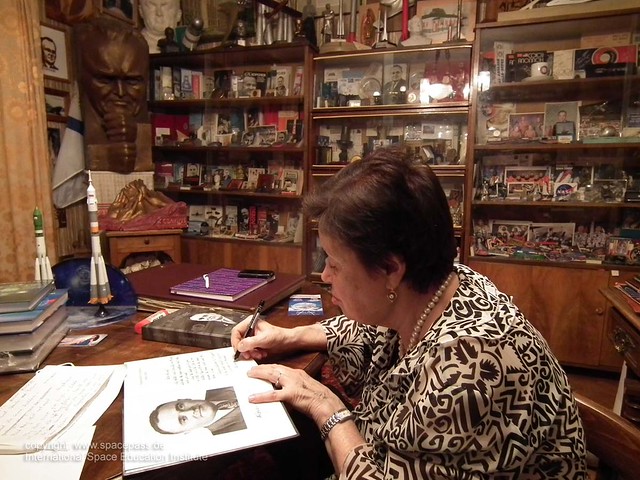Today is the Centennial of Wernher von Braun's birth:
March 23, 1912 - March 23, 2012
von Braun's first job with Hermann Oberth in 1930 was to fundraise for the Verein für Raumschiffahrt; and he did this via flacking displays on interplanetary rockets in a Berlin department store, eight hours a day of telling Berlin housewives how an interplanetary rocket would cost 7,000 marks ($1,700 USD), and take a
year to build.
 "Forty years later, I realize how little one billion dollars will buy and how little you can build in one year."
"Forty years later, I realize how little one billion dollars will buy and how little you can build in one year."
-von Braun
One of his other promotional pushes was "I bet you that the first man to walk on the Moon is alive today somewhere on this Earth!"
At the time, Neil Armstrong was literally a newborn infant in Ohio.
Now, naturally; Huntsville, Alabama remembers the man who put them on the map; who turned them from a decaying US Army Arsenal surrounded by rednecks on farm tractors, to a center of high technology and a major NASA center.
So, there's going to be a ceremony today for his birthday at the US Space and Rocket Center in Huntsville, Alabama in the new building that houses their restored Saturn V:
B-Day Party
HUNTSVILLE, Alabama -- The U.S. Space & Rocket Center is hosting a birthday party on what would have been the 100th birthday of rocket pioneer Dr. Wernher von Braun.
The March 23 event will be at the Davidson Center for Space Exploration, with cocktails at 6 p.m. and dinner at 7 p.m. There will be German food and traditional German music performed by Terry Cavanagh and the Alpine Express.
The special guest speaker will be von Braun's daughter, Dr. Margrit von Braun, the dean of the College of Graduate Students at the University of Idaho. She will speak beneath the Saturn V rocket.
Von Braun's other daughter, Iris Robbins, will also attend the event.
The Huntsville Community Chorus will perform a composition written by von Braun when he was 15 years old. It is the only known von Braun musical composition that contains lyrics.
A number of personal friends of the von Braun family from across the United States and from Germany will attend, said Dr. Deborah Barnhart, the center's CEO.
The party will be "a traditional German birthday party," Barnhart said, "and will be a celebration of von Braun's life and achievements."
Everyone with a paid admission will be able to visit the center's exhibit, "100 Years of Von Braun: His American Journey," at no additional cost.
The March 23 event is sponsored by Lockheed Martin. Proceeds from the $100-a-plate dinner will go to a scholarship in von Braun's name.
Course, it sold out pretty fast.
BTW; the exhibit "100 Years of von Braun: His American Journey" is on display at USRC until May 2012; then it will travel overseas -- Madrid and Munich are mentioned as possible landing sites.
ARE YOU LISTENING THANAS?
Among the items on display is his desktop planning calendar for...July 1969.

And of course, the local media is spamming forth stories:
link
HUNTSVILLE, Alabama -- Wernher Von Braun has been gone for 35 years, but on the eve of the 100th anniversay of his birth three who worked with the gifted scientist and engineer remembered his contribution to higher education in Huntsville.
Speaking at UAHuntsville's Salmon library Thursday afternoon, Charles Lundquist, Fred Ordway and Dave Christensen held a panel discussion in front of an audience of about 60, and gave insights into the mind of the man who, more than anyone else, made Huntsville what it is today.
The panel discussion was part of the"Wernher Von Braun: A Visionary's Influence on UAHuntsville" in which the three discussed Von Braun's influence on education and his successful efforts to encourage the State of Alabama to create a research institute at UAHuntsville.
All three worked with Von Braun and as fellow scientists and engineers, and knew him personally.
Lundquist, who worked under Von Braun at the Army Ballistic Missile Agency in the 1950s, remembered a man who valued education, saw the need for higher technical education in Huntsville to support rocket programs, and worked to bring a research institute to Huntville.
Following an adress to a joint session of the Alabama legislature in 1960, the State of Alabama established the research institute at what was soon to become the University of Alabama in Huntsville.
"He did it with minimal funding," Lundquist remembered. "But he did get it started."
That research instititute was the nucleus of what became, in 1969, the University of Alabama in Huntsville. Lundquist said this avent, along with moon landing in July of that year, made 1969 a momentous year for Huntsville.
Fred Ordway, who worked with Von Braun at both the Army Ballistic Missile Agency (ABMA) and later at Marshall Space Flight Center, described his and Von Braun's efforts to obtain part of the Willy Ley collection for UAH.
Ley, an early German rocket and space enthusiast who influenced both Von Braun and his mentor, Hermann Oberth, wrote and compiled a collection of thousands of books, periodicals, and papers on space, rockets and space travel. After his death in June 1969, just three weeks before the July 16 Moon landing, his widow sold most of the collection to the Smithsonian in Washington, but a significant part went to UAH.
Ordway recalled that in 1970 "about 125 cartons" of books and were shipped to UAH. "It was an incredible library," he recalled.
Dave Christensen said Von Braun was "an excellent educator as was Dr. Ernst Stulinger" who promoted higher education and supported other educational and cultural efforts in Huntville.
A highlight of his presentation was a 1975 video clip of Von Braun giving a lecture on space travel at Johns Hopkins University. Von Braun, Christensen recalled, possessed the gift of being able to connect with whatever audience he was addressing.
"He could be as much at ease giving a speech to the Alabama legislature or a group in Washington as he was talking to his coworkers," Christensen said.
Following the panel discussion, a double plaque marker commenorating Von Brauns support to education was unveiled. On one plaque was inscribed Von Braun's feelings on education.
"Opportunity goes where the best people go, and the best people go where good education goes."
Link
HUNTSVILLE, Alabama -- In his precious leisure time in the 1950s, the world's foremost rocket genius was digging sewer lines, organizing letter-writing campaigns, getting Huntsville musicians together and visiting the library.
How on earth did Wernher von Braun have time to put man on the moon in 1969?
If you've lived in Huntsville long, you've heard the legend of what von Braun and his rocket team brought to a sleepy cotton town. A university. A symphony. A planetarium. The Parkway. A space center. German restaurants. World attention.
Von Braun was a hands-on guy during his time in Huntsville.
In the fall of 1954, a 16-year-old Huntsville High student started an astronomy club. The group wanted real rocket scientists involved and began meeting at the home of Dr. Martin Schilling. They needed a large telescope.
"While Dr. von Braun went shopping for a suitable scope, plans were made to build an observatory," according to local astronomy society history. "Wilhelm Angele, another Army missile expert, volunteered to design the observatory building."
The Rocket City Astronomical Association's first president, elected in April 1955, was von Braun. He found a 16.5-inch reflecting telescope for sale in California (later upgraded to the current 21-inch one). Work crews gathered Wednesdays to construct a building. Von Braun was chief organizer.
"Von Braun encouraged involvement in community and cultural activities - especially those that related to space and rocketry, but he was never too high-minded to help with the most mundane chores," wrote Marshall Space Flight Center historian Mike Wright in a publication called "Wernher von Braun's Support for the Imaginary Arts" about the legacy of the team.
"For example, he helped dig the sewer lines for the new observatory on Monte Sano," Wright wrote based on interviews.
Gert Schmitz, 84, is a charter member of the local astronomy society. A photography buff, he remembers spending hours to get the new observatory up and running. He and von Braun signed invoices together for camera purchases.
"I spent time up here like you wouldn't believe," said Schmitz, a German immigrant who worked for Chrysler missile plant in Detroit (where he met Magnus von Braun, Wernher's brother), then in solid propulsion for Thiokol, at MICOM and with various secret projects. He holds two American patents and worked in conjunction with the von Braun group for four years.
The first picture he took on the 16.5-inch telescope was of the moon, with a 4-by-5 camera.
"I gave it to von Braun. He had it mounted on a walnut frame," he recalled.
Schmitz took many historic pictures through the years, including the Orion Nebula, comet Kohoutek in 1974, MoonBlink in the mid-'60s to observe lunar phenomena, Spacelab and potential moon-landing sites. Sometimes club members would go to the mountain in the middle of the night to scan the skies for something. Other times they would chop down trees obstructing the view.
Schmitz said the official opening of the Monte Sano Observatory was in Huntsville Electric Auditorium on June 12, 1959, followed by a gathering at the observatory. Von Braun mistakenly went to the mountain first, Schmitz recalled, but jumped in his Mercedes model 190 and joined the rest of the group downtown 20 minutes later.
"Portions of the proceeds for the observatory were raised through subscriptions to a local magazine entitled Space Journal that included articles by von Braun and other Huntsville space and rocket experts," wrote historian Wright. "The magazine lasted only a short while but the articles and artwork in the journal illustrated how art and space were joined together in Huntsville."
About 1972, the Rocket City Astronomical Association became the Von Braun Astronomical Society.
A well-read bunch to say the least, the Germans "sometimes put more emphasis on obtaining a library card than in signing up for city services like water and electricity," Wright wrote.
Irene Wilhite is former curator at the U.S. Space & Rocket Center and an expert on von Braun and the rocket team's time here.
The Germans were "triggers" of major cultural change in Huntsville, said Wilhite, who came to Huntsville in 1957.
"Huntsville was a rural community - there was no interest in it" before that time, she said. As more people came, the area began to reach a population that would support artistic endeavors on a larger scale.
That was supported by late Huntsville Mayor Joe Davis in an interview with The Huntsville Times in 1987.
Von Braun "stimulated a section of the community that had not been stimulated before," Davis said at that time. "He made us a little more conscious of the fact that we had dragged our feet as far as the arts were concerned.
"He, being the leader of the German group, made Huntsville realize it was going to have to take on a cosmopolitan atmosphere, rather than a complacent Southern town," Davis said.
By all accounts, von Braun was savvy enough to bring people on board with his vision for the community.
"His speeches were geared toward that audience of what he wanted," Wilhite recalled. For example, to support a local university, he encouraged people to "get out your checkbooks."
"He was so charismatic," she said.
She confirmed that a German architect basically "laid out Redstone Arsenal" and the major thoroughfare that would become Memorial Parkway. "They saw it as the autobahn," she said.
The Huntsville Symphony Orchestra is the city's best-known legacy of that watershed era in local history.
From "Fifty Fabulous Years of Music," an anniversary publication by the HSO:
"While their professional lives were dedicated to realizing visions of flights into space, many of them were skilled amateur musicians who shared a deep-seated passion for classical music."
Rocket team member Walt Wiesman "reported that within months of his arrival in Huntsville he and his wife found themselves licking stamps for a mailout to support the community orchestra," Wright wrote.
The city's new symphony orchestra presented its first show in December 1955.
The concertmaster was Werner Kuers, a senior member of von Braun's team.
Link
HUNTSVILLE, Alabama -- Margrit von Braun was in Japan last October, working with a group studying the environmental aftermath of the devastating earthquake and tsunami. She was sharing a ride with a college student from the University of Tokyo and, as customary, they exchanged business cards.
The young man saw her name and, she recalls, "almost fell out of the car."
"Are you related to Wernher?" the student asked.
"He was my father," she said.
"I thought," Margrit says, laughing at the memory, "he was going to have a heart attack, he was so excited."
This Friday, Dr. Margrit von Braun returns to the city where Dr. Werhner von Braun is remembered as a leader and innovator, where he and wife Maria raised their three children in an active, happy environment that has left her with nothing but "wonderful feelings."
She'll speak at an event at the Davidson Center, marking the 100th anniversary of her father's birth.
She's delighted to be involved in what she called "my father's birthday party."
Her sister, Iris Robbins, will also be here. Her brother Peter and mother Maria, who, like Iris, live in the Washington, D.C. area, won't be able to attend.
"We get together very frequently and everybody is in good health and doing well," says Margrit, who lives with her husband Ian von Lindern in Idaho, where she was a professor at the University of Idaho for 32 years before recently retiring.
"My mother is a very independent, strong, wonderful human being. I'm so proud of her and proud of the role she played and the other women played in the success of the rocket program," Margrit says.
She remembers her mother and others on the German rocket team "having so many problems with the English language as spoken in the South. I used to have to do a lot of phone calls for my mother, even though her English was very good. She couldn't understand them and they couldn't understand her. I could at least fake a Southern accent."
As a scientist and professor, Margrit von Braun appreciates her father's genius, saying, "It's humbling."
As a daughter, though, what she says now differs little from when she wrote this school assignment that would appear in The Huntsville Times' May 26, 1963 edition:
"To other people, he may be the foremost rocket engineer and scientist in the world. But to me he is the most kind, considerate, and helpful father there is. He is the best father in the world."
Her father, she says, made people with whom he talked feel "like the most important person in the world." He was "very affectionate" and he loved spending time on Lake Guntersville boating with the family. He bought Margrit a horse and taught her to scuba dive.
"He was just always a lot of fun to be around. He was always laughing," she says. "He was able to laugh a lot, and just enjoyed life. He made sure that people valued what was important."
Margrit von Braun has nothing but warm memories of Huntsville. She returns occasionally for reunions with old friends. She still remains close to people she met while attending Blossomwood Elementary from the first through fourth grades and while at Randolph School from the fifth through ninth. (She attended high school at a boarding school in Atlanta).
"Huntsville makes such a high-tech impression. And that's not a description I would have ever used growing up," she says. "It's big and robust and it feels moving. It seems very vibrant and with a great sense of community. Not just in technology, but also the arts have a big role in Huntsville, which again was not a big part of my memory as a child."
She recognizes the role her father played in Huntsville's evolution.
"I think he and his team seemed to be well-respected and well-remembered there, which is wonderful," Margrit says. "I think those are things he and his team were committed to. And I think he would be so proud to see what Huntsville is like today and to know he had a part in that growth."
Link
HUNTSVILLE, Alabama -- He was right there Thursday afternoon in Room 111 of the Salmon Library at the University of Alabama in Huntsville.
Wernher von Braun seemed so alive, so vivid, so engaging on the video that the jam-packed room applauded when it ended as if von Braun himself had been present.
On a day of celebration for the father of America's rocket program - the day before what would have been his 100th birthday - von Braun made a cameo in a grainy 1975 video from a lecture he gave at Johns Hopkins University.
The gist of the video? This is how you send men to Mars.
"He thought a lot about it," said Dave Christensen, a former UAH scientist who once worked with von Braun and included the video during a panel discussion.
Indeed, the detail of a journey that today remains merely in theory captivated the audience.
Von Braun envisioned the trip taking about 18 months each way and including 12 astronauts - not three as was the familiar method of operation for the Apollo moon landings.
He incorporated the now-idle space shuttle program along with the massive Saturn V moon rockets as the vehicles to Mars.
"Mars was always his objective," Christensen said.
Frequently described as "a dreamer" during the panel discussion, von Braun outlined the Mars plan during the questions after his Johns Hopkins speech. Christensen said he was invited to the lecture while visiting von Braun in Washington.
Looking back, it's an honor Christensen still treasures. And as the centennial anniversary of von Braun's birthday approached, Christensen recalled that lecture and discovered the video.
It made for a grand finale to the panel discussion, which also included von Braun contemporaries Charles Lundquist and Fred Ordway paying homage to the space pioneer's legacy and his impact on Huntsville and the space program.
Lundquist, in fact, noted that 1969 was a "historic year" not only because of the moon landing but also the addition of UAH to the University of Alabama System.
"Both events owe much of their success to Dr. von Braun," Lundquist said.
The moon program, however, was viewed by von Braun as preparation for going to Mars. Christensen said the plan in 1961 - when the moon program began - was to go to Mars in 1982.
"That '61 plan, it didn't show stopping in Earth orbit," Christensen said. "We went to the moon and we quit. We had a lot of capability. We had everything we needed to go to Mars."
Von Braun's plan, as outlined in the video, was to build two interplanetary spaceships in low-earth orbit. The space shuttle would ferry supplies and workers to the construction project.
The Mars rockets would be nuclear powered and the journey would be "like an expedition on a sailing ship," von Braun told the Johns Hopkins audience that day.
"With the travel time of about a year and a half, you would like to take a cook and a doctor and everything else along," von Braun said.
On that day in 1975, von Braun also spoke of discoveries that had been made about Mars, including a massive canyon that spanned the distance from Miami to Seattle, as well as a volcano larger than any on earth.
"Mars has the highest volcano in the world," von Braun said, then correcting himself by saying "in the solar system" as the audience got a laugh out of his slip of the tongue.
"Needless to say, if we do find evidence of life on Mars, the rush will be on again and man will probably want to follow unmanned exploration," von Braun said.
Today, Mars perhaps seems even more remote than it did in 1975.
"We were short-sighted in our space travel," Christensen said during the panel discussion. "A lot of that is politics."
Afterward, Christensen was asked what he thought of von Braun's dream of putting man on Mars still being unrealized.
"It is sad," Christensen said. "It really is."
Link
HUNTSVILLE, Alabama -- It's been more than 50 years but former Alabama Gov. John Patterson laughed a deep, hearty laugh at the memory.
In an interview earlier this month with The Times, Patterson talked about the influence Wernher von Braun had on the development of the University of Alabama in Huntsville as it is today.
Von Braun spoke before a rare joint session of the state Legislature in 1961, urging lawmakers to earmark money for the creation of a research facility at what is now known as UAH. The research facility, von Braun told lawmakers, was needed to keep NASA's presence in Huntsville as the nation embarked on the race to beat the Soviet Union to the moon.
That speech in Montgomery is a legendary part of Huntsville's history.
But Patterson also offered a bit of a "rest of the story" perspective to the speech.
"It went over very well and he was well-received," Patterson said. "And I had invited everybody (in the Legislature) out to the governor's mansion for lunch right after he spoke. We did a little research on him and discovered one of the things von Braun really liked was a luncheon wine known as Lancer's Rose.
"It's a Portuguese wine. You can't buy that in Alabama in the liquor store today. You couldn't buy it in the store back then, either.
"We had shipped in several cases of Lancer's Rose wine for lunch. Now the Legislature, in those days, was notorious for drinking. We had them out for lunch and they drank every bottle of that stuff. And they went back into session (after lunch) and immediately passed and appropriated the money for the construction and the starting of the University of Alabama in Huntsville."
The Legislature directed $2 million that day to UAH.
"I have said many times that the need was obvious (for the research center at UAH)," Patterson said. "This had to be done. But on top of that, it seemed like everybody was for it. And then Lancer's Rose might have played a role in it, too."
If you can't make it to Alabama, you can try for Washington DC as von Braun lies at Section T, Plot 29, Site 5, of Ivy Hill Cemetery, off King Street in Alexandria, Virginia.
Or in more specific terms, the turn off to Ivy Hill is at:
38°49'0.66"N 77° 4'27.45"W
or
2823 King Street Alexandria, Virginia 22302-4012
And the Specific Location is:








